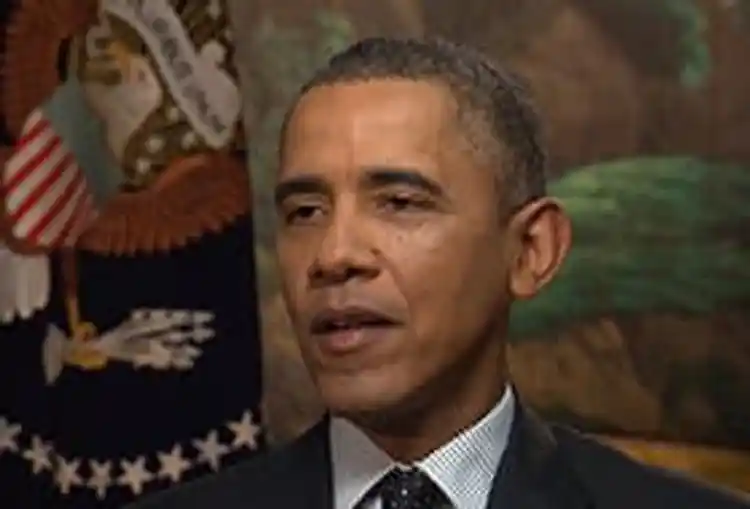Penalty vs. Insurance

Hide Video Transcript
Video Transcript
LISA ZAMOSKY
We did have a number of people, like Jane from Washington state, who says she isn't planning on purchasing a plan, again, because of the issue of cost, which was a large percentage of the questions we got. She says it's cheaper to pay the penalty. If a lot of Americans follow Jane's lead, what impact will this have on the ACA, people want to know. BARACK OBAMA
Well, at this point, enough people are signing up that the Affordable Care Act is going to work. The insurance companies will continue to offer these plans. We already have four million people, over four million people, signed up. It will be a larger number than that by the end of March 31, the deadline to get insurance this year. If you miss the deadline, by the way, on March 31, you can get insurance, but you'll have to wait until November of next year or November of this year to start signing up again. You know, the impact, in terms of the program, has always been based more on the mix of people who sign up. Do we have a mix of people who are gray haired like me and may have small basketball injuries and aches and pains, along with young people who are healthy and don't really have any issues right now?
Do we have a good mix of gender, in terms of men and women, because one of the things that I didn't mention earlier, in traditional insurance, women have been charged more than men. Essentially, being a woman was a preexisting condition, and it justified higher premiums. And we've eliminated that, not just for plans under the Affordable Care Act, but for plans generally. You can't discriminate against women in terms of how you charge folks.
But what you'll find, I think, is that the marketplace will be stable. And you know, the premiums are going to be reflective of the fact that there are a lot of people who've already signed up. Now, the larger these marketplaces get, a year from now, two years from now, three years from now, as the program develops, potentially that brings the costs down even more.
So if all 40 million people who didn't have health insurance all signed up by March 31, in which case there probably would be a line a little bit in terms of signing up. But if all 40 million people signed up, then you could assure that probably the premiums would go down significantly next year, just because the pool would have gone beyond what the insurance companies anticipated.
You know, the basic principle of insurance is pretty straightforward. The more you can spread the risk with more people, the better deal you're going to get. And now the pool is already large enough, the number of people who've signed up is already large enough that I'm confident the program will be stable. But we look forward to seeing more and more people take advantage of it as some of the politics of the thing get drained away, as people start feeling more confident about the website. It's folks like you, you know, spread the word, in terms of giving people accurate information. And then, over time, I think a lot more people are going to take advantage of it.
LISA ZAMOSKY
Well, Mr. President, on behalf of the WebMD community, I want to thank you so much for your time tonight. BARACK OBAMA
Well, thank you very much. As I said, go to healthcare.gov and take a look for yourself. See if it works for you. LISA ZAMOSKY
Thank you. BARACK OBAMA
Appreciate it. LISA ZAMOSKY
Thank you so much.